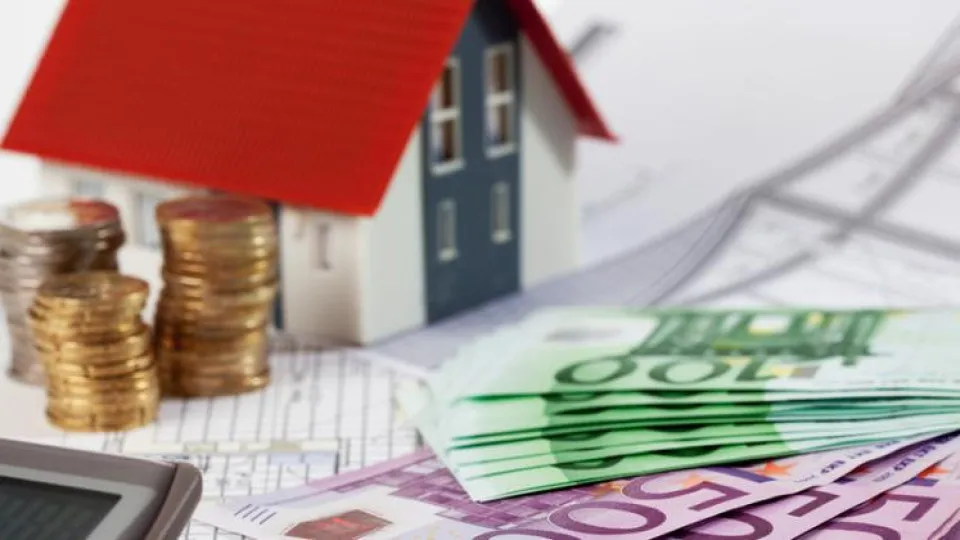
Two out of 10 Portuguese people save to buy a house
Currently, only two out of 10 Portuguese people save with the purpose of buying a house. From the same study, it is concluded that two-thirds of Portuguese people are saving less than 10% of their salary. These are data revealed by the Boston Consulting Group, which reveal the consequences of the financial difficulties we are going through. Get to know all the data, and exactly how much we should save to buy a house, in this article.
Buying a house? It's with us! We provide services that can help you throughout the process of buying and contracting housing credit: Contact the real estate agency Casa no Minuto and credit intermediary Poupança no Minuto for more information. Or understand the data revealed first.
Two-thirds of Portuguese save less than 10% of their salary.
There is no doubt that the purchasing power of the Portuguese has been decreasing, in this inflationary context and rising interest rates. This has led to the conclusion that few have been able to save more than 10% of their income.
The study is conducted by the Boston Consulting Group, entitled "Consumer Sentiment Survey 2023" and reveals the following conclusions, which can be read in Notícias ao Minuto's share:
- Two-thirds of Portuguese people save less than 10% of their salary;
- 4 out of 10 respondents are unable to save even 5% of their income after tax deductions;
- Saves 16% between 10% and 20% of your net salary, 10% saves between 20% to 30%, and only 2% saves more than half of what they receive;
- Portuguese disposable income after expenses was at 7.5% in the 1st quarter of 2023 (6.7% lower than the Eurozone average of 14.2%);
The reasons are related, of course, to the context we have been going through of "inflation, rise in interest rates and not keeping up with wages". A context that leads to a lower purchasing power, but also "a decrease in the savings rate and in investment", as reported by Notícias ao Minuto publication.
These circumstances are mostly reflected in consumption habits, as 64% of Portuguese respondents reported feeling "a significant increase in food costs, 44% in personal vehicles, 42% in housing expenses, 36% in pharmacies, 17% in health, and 16% in pet care."
In addition, when managing to save, 64% of Portuguese people "allocate that portion of income to cover potential unexpected expenses", 36% use savings to "accumulate for retirement", 30% allocate savings for travel, 11% for buying a car, and 10% for other consumer goods.
Finally - but no less important - two out of every 10 Portuguese respondents said they are saving to buy a house. Now, how much do you need to save for a house currently?
I want to buy a house: How much do I need to save?
To buy a house nowadays, you need to save a significant amount, even if you choose a housing loan. Let's see how much.
When buying a house through financing, you need to consider that: banks nowadays do not lend 100% of the property value. In the case of primary and permanent residence, they lend a maximum of 90% of the property value, and in the case of secondary residence, 80% of the value. This is based on the lower value between the acquisition value or the property's appraisal value.
What this means is that, if the house you want to buy, for own and permanent housing, has a purchase value of 230,000 euros and an appraisal value of 250,000 euros, you will need to have available capital of 23,000 euros (10% of the lowest value, in this case, the purchase price).
In addition, you still need to account for these initial own capital, the value of taxes that you will have to pay:
- Stamp Duty, equivalent to 0.8% of the property acquisition value;
- The Municipal Property Transfer Tax (IMT), which is applied to the highest value of the property, between the acquisition value and the Taxable Asset Value (VPT) identified in the property booklet of the house; its value depends on the applied rate, from 1% to 8%, the location and respective purpose of the property; note that it may also be exempt from IMT if the property for own and permanent residence is not worth more than 97,064 euros on the mainland and 121,330 euros in the Autonomous Region of Madeira or the Azores.
Finally, as for the initial costs of hiring house with housing credit, take into account the bank processing expenses. You are subject to bank commissions, such as assessment, opening and process study, formalization, and mutual registration with mortgage. The total cost can vary between 500 and 1,300 euros, with the registration fee at Casa Pronta being 700 euros.
So, these are the expenses that weigh on your wallet when buying a house and which you will have to save up for before starting the process. Regarding this, you should know that if you hire help to guide you, in addition to a simpler process, you may be able to get a cheaper financing proposal.
You turn to a real estate agency to help you with your dream home, why not turn to a credit intermediary to help you with your ideal credit? And the best part... with us you can have access to both services!
In case you have savings ready to buy your home, contact the real estate agency Casa no Minuto that helps you find the property you are looking for, and the credit intermediaries of Poupança no Minuto who, for free, simulate your financing in several banks and help you choose the best (and cheapest) credit conditions for you!